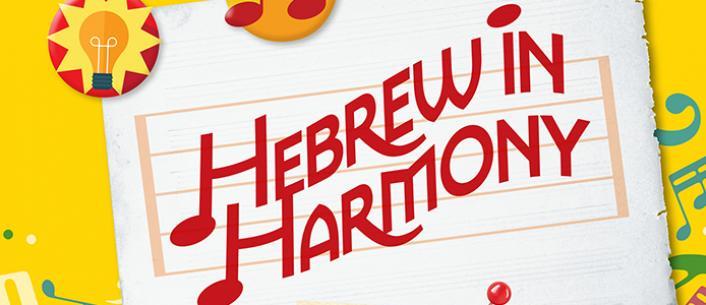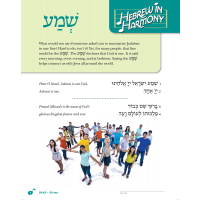Extensive Research Leads One New Jersey School to Use Hebrew in Harmony
Extensive Research Leads One New Jersey School to Use Hebrew in Harmony

When educators at Congregation M'kor Shalom in Cherry Hill, New Jersey, decided to change the school's Hebrew program, the first thing they did was to get organized.
"We think we teach the right thing at the right time but wanted to shake things up a bit," says Education Director Merle Steinberg. "We spent three months doing the research and work to make sure we knew all of our options."
Steinberg wanted more depth to the lessons, as well as options for flexibility and digital learning, to accommodate their changing student population. and her education committee set out to research the options. Their research ran the gamut, from schools with distance learning formats and those with traditional models to pilot programs where teachers go to student homes. "We looked at every modality and curriculum, trying to find what will truly work for us," Steinberg says
During that time, Hebrew in Harmony, the music-based prayer curriculum for grades 4-6, landed on her desk in the Golem Express package and Steinberg initially gave it to her music director. It didn't take long for them to realize it was a prayer curriculum with music, much of which they're using already. "The rabbi, cantor, and I were blown away by it."
They reached out to a large congregation in Atlanta, which plans to roll out Hebrew in Harmony this fall, to learn from their planning process, finding them through the Hebrew in Harmony Facebook group. That research and those conversations cemented Steinberg and her colleagues' initial impressions that the program was a right fit for them.
"We want to have all modalities possible. We want children to feel like they own a prayer. How do I feel when I hear it?" Steinberg says. "Hebrew in Harmony makes kids get involved in their learning."
Hebrew in Harmony comes with three complete lesson plans for each of the prayer modules, something that appealed to the school, which has many young part-time teachers who don't often have time to develop comprehensive plans.
The digital companion also appealed to both Congregation M'kor Shalom teachers and students. Students at every grade level tested it in March, giving it a thumbs up. "They just took to it immediately," Steinberg says. The tipping point came when a congregant donated 20 computers to the school, making use of the digital elements possible during class.
"The stars just aligned for us," says Steinberg. The school plans to introduce Hebrew in Harmony to its students beginning in September.
To learn more about Hebrew in Harmony, click here. Join the Hebrew in Harmony Facebook group for the latest news and information.


